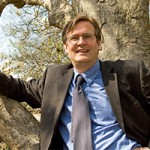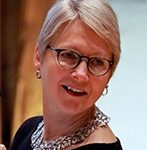Biophilic Cities, Integrating Nature into Urban Design and Planning from Security & Sustainability Forum on Vimeo.
Aired on 5/11/2017
The “greening” of cities can focus on everything except nature, emphasizing such elements as public transit, renewable energy production, and energy efficient building systems. While these are important aspects of reimagining urban living, human beings have an innate need to connect with the natural world (the biophilia hypothesis). And any vision of a sustainable urban future must place its focus squarely on nature, on the presence, conservation, and celebration of the actual green features and natural life forms.
Research shows nature’s ability to reduce stress, to aid recovery from illness, to enhance cognitive skills and academic performance, and to aid in moderating the effects of ADHD, autism and other childhood illnesses. Recent research suggests even that we are more generous in the presence of nature; all these values are in addition to the immense economic value of the ecological services provided by natural systems.

Island Press and the Security and Sustainability Forum participated in a free webinar featuring Tim Beatley, Chair of the Department of Urban and Environmental Planning and Teresa Heinz Professor of Sustainable Communities at the School of Architecture at the University of Virginia and author of Handbook of Biophilic City Planning & Design. Tim discussed the principles of biophilia and used Washington,D.C. as an example biophilic city.

Webinar moderator David Maddox is the founder and Editor in Chief of the Nature of Cities, an international platform to share diverse, transformative ideas about cities as ecosystems of people, nature, and infrastructure. David’s work focuses on the development and dissemination of useful knowledge for design and management of social-ecological systems in urban landscapes.

Sabine O’Hara
They are joined in the DC discussion by Sabine O’Hara, Dean and Director of Landgrant Programs for the College of Agriculture, Urban Sustainability and Environmental Sciences (CAUSES) of the University of the District of Columbia (UDC)

Tommy Wells is Director of the Washington, D.C. Department of Energy & Environment (DOEE) and responsible for protecting the environment and conserving the natural resources of the District of Columbia.
